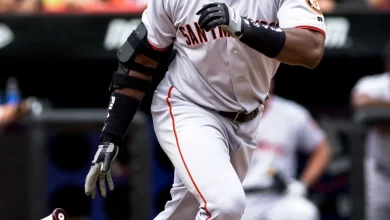
Everything to Know About the NHL Trade Deadline
The NHL trade deadline is a pivotal moment each season, where teams decide whether they’re gearing up for a playoff run or setting their sights on future success. This day is marked by a flurry of activity, as general managers negotiate trades to either bolster their rosters for a postseason push or offload assets in exchange for prospects and draft picks to rebuild for the future. Understanding the intricacies of the trade deadline can offer insights into the strategic decisions teams make and the impact these moves have on the league’s landscape.
Historical Context
The NHL trade deadline dates back to the league’s early days, but its significance has evolved over time. Initially, it was a quiet affair, with few teams making moves. However, as the league expanded and the competition intensified, the deadline became a crucial strategic juncture. It’s a day that can define a team’s season and, in some cases, its future direction.
Rules and Regulations
The trade deadline is set by the NHL and typically falls in late February or early March, about three-quarters of the way through the regular season. The exact date can vary each season based on the league’s schedule. As of the deadline, teams are no longer allowed to trade players for the remainder of the season. This rule is in place to maintain competitive balance and ensure that the playoff race remains fair.
Strategy and Tactics
Teams approach the trade deadline with one of two mindsets: buyers or sellers. Buyers are teams in a strong position to make a deep playoff run. They look to add veteran talent, depth players, or specific skills (like a power-play specialist) to bolster their roster. Sellers, on the other hand, are teams with slim playoff hopes. They aim to offload high-priced veterans or expiring contracts in exchange for young talent, prospects, or draft picks, thus investing in their future success.
Impactful Trades
Over the years, the NHL trade deadline has seen some blockbuster deals that have significantly impacted teams’ fortunes. These trades often involve big-name players and can alter the league’s competitive balance. For instance, a contending team might acquire a star player to push them over the top, while a rebuilding team might trade away a franchise icon to start a new era.
Player Movement and Adaptation
Trades can be disruptive for players, who may have to relocate their lives at a moment’s notice. Adapting to a new team, city, and system can be challenging, but it’s also an opportunity for players to reinvigorate their careers or chase a championship with a contender.
Fan and Media Frenzy
The trade deadline is not just a significant day for teams and players; it’s also a major event for fans and the media. Speculation and rumors run rampant in the weeks leading up to the deadline, with fans eagerly following every potential move. The day itself is covered extensively by sports networks, with analysts breaking down each trade’s implications.
Economic Implications
The financial aspect of trades can’t be overlooked. Teams must manage their salary caps, ensuring that any trade doesn’t put them over the limit. This financial juggling act can make or break a team’s ability to make significant moves at the deadline.
The Future of the Trade Deadline
As the NHL continues to evolve, so too does the nature of the trade deadline. With advancements in analytics and a greater emphasis on player development, teams are becoming more strategic in their decisions. The deadline will remain a crucial part of the NHL season, but the strategies employed and the types of deals made may change.
Conclusion
The NHL trade deadline is a complex event that involves strategic planning, financial acumen, and a bit of gamble. For teams, it’s an opportunity to make the moves that could lead to a Stanley Cup victory or set the foundation for future success. For players, it can be a time of uncertainty but also of new opportunities. And for fans, it’s one of the most exciting and nerve-wracking days on the NHL calendar. As we look toward the future, the trade deadline will undoubtedly continue to be a focal point of the NHL season, reflecting the ever-changing dynamics of this fast-paced league.



